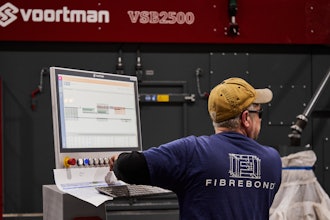LONDON (AP) -- Manufacturing output in Britain declined in February for the 12th consecutive month, although the pace of the drop was the slowest in half a year, the government said Tuesday.
A separate report from the British Chambers of Commerce, meanwhile, showed gloom among manufacturers reached record levels in the first quarter but detected an improvement in confidence in the services sector.
Manufacturers' output fell 0.9 percent between January and February, leaving it 13.8 percent lower than a year ago, the Office for National Statistics said, while also cautioning that monthly changes are notoriously volatile.
The biggest output drops were 3.7 percent declines in both the transport equipment industry and the nonmetallic mineral products sector.
For the three months from December to February, the seasonally adjusted index for production output fell by 5.8 percent compared with the previous three months and was 11.1 percent lower than the same three month period a year earlier, the agency said.
"Even the benefit to UK manufacturers coming from the sharp depreciation in the pound is so far being outweighed by sharply deteriorating domestic demand in key export markets, notably the Eurozone and the U.S.," commented Howard Archer, chief European economist at Global Insight.
Vicky Redwood at Capital Economics said February's figures tentatively suggest that the drag on output from manufacturers running down inventories might be easing. "However, the sector's still in pretty bad shape," she said.
The automotive sector is one of the hardest-hit in Britain, with output in December down 44.9 percent, the statistics agency said.
New car sales in Britain, including imports, are down about 30 percent in the first quarter, the Society of Motor Manufacturers and Traders said Monday.
The Chambers of Commerce Survey found that 20 percent of manufacturing companies were operating at full capacity, down from 29 percent in the fourth quarter of last year.
In the services sector, 38 percent of companies said they were at full capacity, up 2 points from the previous quarter.
The survey said the numbers of manufacturing firms planning to increase capital investment and spend more on training dropped to record lows.
Benjamin Williamson, an economist at the Center for Economics and Business Research, endorsed the pessimistic view.
"Our latest forecasts for the UK economy show that both total production and manufacturing sector output are in for double-digit contractions in 2009. They still therefore have some way left to fall," Williamson said.
The Chambers of Commerce urged the government to "act forcefully on a broad front to alleviate the recession and help rebalance the economy toward exports and investment."
"Quantitative easing must be pursued aggressively," the Chambers added, referring to the Bank of England's policy to buy assets from banks to increase the amount of money in the economy and boost lending.
It also called for government spending cuts in the medium term, and for a lighter regulatory burden.






















